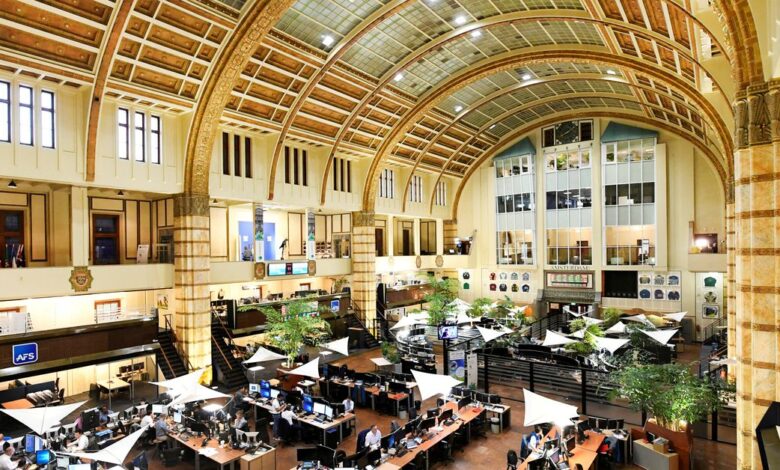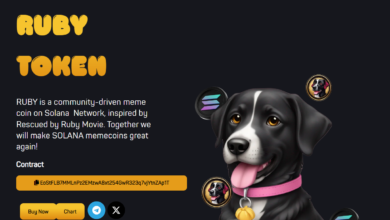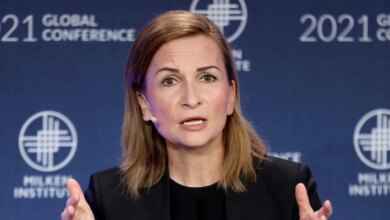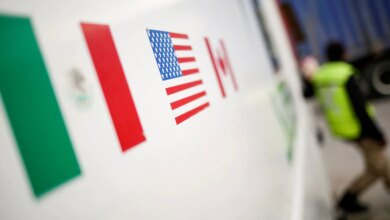Analysis: Europe’s IPO market roars back to life but where are the SPACs?

FRANKFURT, Sept 27 (Reuters) – European inventory market listings have come again with a bang after the summer season lull however clean cheque corporations are nowhere to be seen.
To this point this quarter, 42 preliminary public choices (IPOs) in Europe have raised $8.5 billion, the very best quantity for a decade, however there hasn’t been particular goal acquisition firm (SPAC) deal since July, in keeping with Refinitiv information.
The SPAC frenzy in america throughout 2020 and the primary half of 2021 was extensively tipped to spill over to Europe however regardless of a flurry of exercise earlier than the vacation season, the market seems to have fizzled out.
“The SPAC IPO market is nearly useless,” stated German entrepreneur Christoph Gerlinger, who thought-about organising a SPAC however has shelved these plans to give attention to his job as a non-public fairness supervisor investing in know-how corporations.
A SPAC is a clean cheque agency that raises funds in an IPO with the purpose of merging with a non-public firm. As soon as that occurs, the goal turns into a listed inventory, sidestepping the normal IPO route which is closely regulated.
SPACs grew to become one in every of Wall Avenue’s hottest funding developments final yr as many retail buyers caught at residence throughout COVID-19 lockdowns positioned speculative bets on them.
In Europe up to now this yr, SPAC issuance peaked within the second quarter with 15 offers elevating $3.7 billion, adopted by seven extra in July price $1.4 billion, however there haven’t been any since, the Refinitiv information confirmed.
General, 26 SPACs have listed in Europe this yr, elevating $6.6 billion. Over the identical interval in america, 433 new SPACs have raised $118 billion.
The final time there have been extra European IPOs in a 3rd quarter was in 2007 with 99 offers and the quantity raised was the very best since 2011, when IPO proceeds got here in at $9 billion, in keeping with the Refinitiv information as of Sept. 24.
SELECTIVE ISSUES
SPACs supply firms corresponding to know-how corporations with excessive progress potential however little near-term visibility on income and revenue an avenue to lift funds in a much less onerous approach than a full-blown IPO.
In addition they supply revenue alternatives for SPAC sponsors – normally well-known entrepreneurs – in addition to buyers, who get the possibility to purchase into non-public firms through the inventory market relatively than much less liquid enterprise capital funds.
However SPAC sponsors and bankers say demand has dried up within the face of poor efficiency, a in america, and waning market sentiment.
The European Union’s markets watchdog additionally that SPACs may not be for everybody attributable to dangers of dilution, conflicts of pursuits and uncertainty as to the identification and analysis of the goal firm.
“I solely count on selective new problems with high quality SPACs coming to market,” stated Christoph Stanger, co-head of fairness capital markets in EMEA at U.S. funding financial institution Goldman Sachs.
Within the third quarter globally, solely 85 SPACs listed, elevating $14 billion, down from 309 SPACs elevating $95 billion within the first quarter, in keeping with the Refinitiv information.
Whereas some buyers in U.S.-listed shell firms made fortunes in a single day when the shares surged, many who held onto their investments are nursing losses.
“When an investor should buy an present SPAC at a reduction to listing worth it is much less engaging to purchase a brand new SPAC,” stated one fairness capital markets banker.
HOMETOGO DEBUT
In Europe, shares within the first firm to be created through a SPAC merger this yr began buying and selling final week, however with a whimper relatively than a bang.
German journey tech startup HomeToGo , the goal of Lakestar SPAC I, backed into the Frankfurt inventory market on Sept. 22 by finishing its union with the listed shell firm.
HomeToGo’s shares edged larger on the day, however had been nonetheless 10% decrease than the value Lakestar listed in February and 33% under the height the shell firm’s shares hit that month.
European firms corresponding to air taxi startup Lilium , automotive vendor Cazoo , funds agency Paysafe and World Blue , electrical car charging agency EVgo and cyber safety firm Arqit have all efficiently gone public in america through SPAC offers.
However most are under their SPAC subject worth, with a number of notable exceptions corresponding to Arqit. Globally, about 60% of SPACs which have purchased their goal firm are actually buying and selling under their subject worth, analysts say.
There was a distinct temper within the spring when the buoyant U.S. market triggered the beginning of a European SPAC wave.
Tikehau Capital-backed Pegasus Europe raised $606 million in April adopted by Hedosophia European Development which raised $483 million, each itemizing in Amsterdam.
Then the market began to chill as buyers realised the hunt for targets was pushing up valuations, making investments much less engaging, analysts stated.
“Traders are at the moment unwilling to purchase into new SPACs whereas there are 423 SPACs with $131 billion in raised capital on the market ready to search out takeover targets,” entrepreneur Gerlinger stated.
HERE TO STAY?
German investor Primepulse, for instance, explored a SPAC deal this yr and held some conferences with buyers, however has stated it determined to drop the mission attributable to waning demand.
Most of the SPAC mergers that did get performed additionally struggled within the last stretch as some shareholders opted to redeem their cash relatively than staying invested after the merger. Lilium, for instance, had redemptions of 66% whereas it was 37% for Hometogo.
That meant SPAC managers needed to put extra of their very own cash into offers, forfeit profitable compensation or abandon the mergers altogether. And SPACs that do not seal a merger inside two years of their IPOs need to return the cash to buyers.
Rene van Vlerken, head of itemizing at Euronext Amsterdam – which has attracted plenty of Europe’s SPAC offers – stated the present weak spot would finally be overcome.
“There are plenty of SPACs available in the market, all on the lookout for engaging enterprise mixtures. The market is ready for plenty of good acquisitions by European SPACs,” he stated.
Giacomo Ciampolini, head of EMEA Various Capital at Citi, additionally stated the SPAC market would finally rebound.
“SPACs have already began to reach in Europe, mixtures have been introduced and closed and there are numerous sponsors, firms and buyers who recognise the deserves of the instrument,” he stated.
Further reporting by Nadine Schimroszik; Enhancing by David Clarke
:





